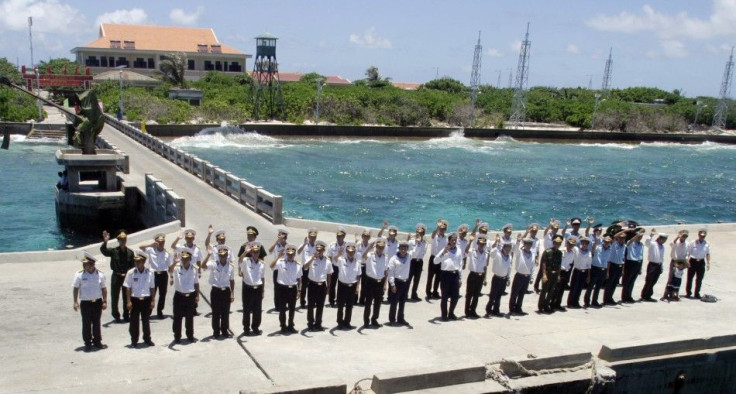Standoff In The South China Sea: China Faces Off With Vietnam and The Philippines Over Spratly Islands Dispute

China has found itself locked in two separate standoffs between Vietnam and the Philippines over a territorial dispute in the hotly debated waters of the South China Sea, just off the Spratly Islands. China’s claim over most of the South China Sea has made it a target for dispute and conflict for many Southeast Asian countries.
A confrontation between a Chinese vessel and two Vietnamese ships as well as an incident that resulted in Philippine maritime officials seizing a Chinese fishing boat along with its personnel is likely to add to the ongoing tug-of-war over the region.
The Spratly Islands, known to Chinese as the Nansha Islands, are claimed by several Southeast Asian countries, and are now at the center of a dispute between China and Vietnam. The Foreign Ministry of Hanoi is reporting that a Chinese vessel intentionally rammed Vietnamese ships, causing considerable damage and injuring six people aboard. The clash is the latest between the two countries, which have been at odds historically but especially since China set up an oil exploration rig in the disputed waters late last week. Vietnam condemned the rig operation, which it claimed was set to be placed in key Vietnamese economic waters.
While China is being accused of damaging Vietnamese ships near the Spratlys, civilian Chinese boats have also found themselves in trouble in the area. Yesterday, Filipino police seized a Chinese fishing boat near an area called the “Half Moon Shoal” after it was found to have caught several hundred turtles, an animal protected under Filipino conservation laws, towing the vessel to southwestern province of Palawan. Chinese state media said that the 11 fishermen onboard were intercepted by “armed men.”
On popular Chinese social media platform, Weibo, netizens have joined in on the dispute.
“Another example of people being suddenly threatened, this area has always been ours,” one blogger posted.
“Against Vietnam and the Philippines, China must find a way to deal with forces that are continuously undermining what is inherently ours,” another blogger wrote.
But not everyone felt as strongly about Beijing’s claims over the area.
“Yes, the area has resources, but how long can we do this for?” one blogger asked, referring to the constant mounting pressure and tension in the region that China is engaged in. “We’re at the mercy of our people that are being held, just return our fisherman to safety.”
“This has become about greed, on every nation’s part,” another added. “Let the Foreign Ministry spokesman handle and scare the Philippines, the Chinese people are sick and tired of listening,” a blogger also said.
China has yet to respond to the Vietnamese allegations of ramming into their boats, but Foreign Ministry spokeswoman Hua Chunying has called on Manila to release its ship from custody.
“China’s Foreign Ministry and China’s ambassador to the Philippines have made representations to the Philippines side, demanding that it provide a rational explanation and immediately release the people and the vessel,” Hua said in a briefing. “We once again warn the Philippines not to take any provocative actions,” adding that China maintained “indisputable sovereignty” over the islands.
© Copyright IBTimes 2024. All rights reserved.





















